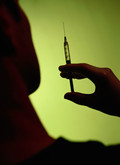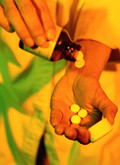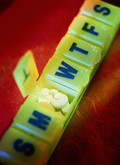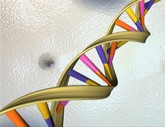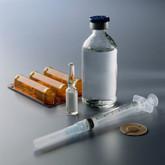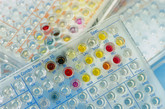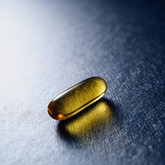Biosimilars/Research
Comparison of EPARs for G-CSF biosimilars approved in Europe
EMA approved its first biosimilar granulocyte colony-stimulating factor (G-CSF, filgrastim) for use in Europe back in 2008, since then, several biosimilar G-CSFs have been approved, including Biograstim, Filgrastim ratiopharm, Ratiograstim, Tevagrastim, Filgrastim Hexal, Zarzio and Nivestim. All biosimilar G-CSFs were approved using Amgen’s Neupogen as the reference product. Filgrastim ratiopharm was withdrawn on 20 April 2011.
Overview of research on regulatory issues surrounding biosimilars in 2012
Period: January to August 2012
In the area of regulation of biosimilars Europe has by far the best-established framework for approval and EMA has already issued both general and product specific guidelines for biosimilar applications to the EU [1]. The first biosimilar was approved in the EU in 2006 for Omnitrope (somatropin). There are now 14 biosimilars approved for use in Europe for three reference products: erythropoietin, granulocyte-colony stimulating factor and somatropin [2].
Overview of research on US regulatory issues surrounding biosimilars in 2012
Period: January to August 2012
The US is somewhat behind Europe in the biosimilars race, but has issued draft guidance and is expected to have a practical biosimilar approval pathway in place in the near future.
Dialogue needed to build confidence in biosimilars
Concerns about the safety and efficacy of biosimilars have led many healthcare professionals to become reluctant to prescribe these products for their patients [1]. According to a commentary by Dr Hans C Ebbers and co-authors, these concerns could be addressed through more engagements taking place between regulatory authorities and the medical community over the drafting of regulatory guidelines [2]. This would result in greater confidence in the regulatory process and trust in the products that gain approval.
Positive results from phase III study with biosimilar human insulin
One of Asia’s leading biotechnology companies, Biocon, announced on 31 October 2012 positive results from its global phase III study for its recombinant human insulin (Insugen). The study, which was carried out in type 1 diabetes mellitus (T1DM) patients, demonstrated comparable safety and efficacy compared to the originator product.
Sandoz starts phase III US trial for biosimilar epoetin alfa
Sandoz, the generic drug division of Swiss drug giant Novartis, announced on 25 October 2012 that it had started patient enrolment in a phase III clinical trial in the US for biosimilar epoetin alfa (Amgen/Johnson & Johnson’s Epogen/Procrit).
Pfizer carrying out biosimilar trastuzumab trial in US
Pharma giant Pfizer is carrying out a phase I trial in the US for a biosimilar version of trastuzumab.
Overview of research on biosimilarity/comparability and interchangeability of biosimilars 2012
Period: January to August 2012
After the patent on a biological medicine expires ‘similar’ versions of the originator biological can be produced. These biosimilars or ‘similar biological medicinal products’ are similar (but not identical) in terms of quality, safety and efficacy to an authorised reference biological medicine.
Boehringer Ingelheim completes biosimilar adalimumab trial
Biopharmaceutical specialist Boehringer Ingelheim Pharmaceuticals (Boehringer Ingelheim) has completed its phase I trial for a biosimilar version of adalimumab.
Overview of research on safety and immunogenicity of biosimilars in 2012
Period: January to August 2012
Biosimilars or ‘biosimilar medicinal products’ are medicinal products that are similar (but not identical) in terms of quality, safety and efficacy to an authorised biological reference medicine. Manufacturing of biologicals is complex, and the quality of the resulting biological is dependent on careful control of manufacturing processes and conditions. Unlike traditional small molecule (chemical) drugs, the development of biologicals is different and variable with respect to the manufacturing process and environmental factors, such as light and temperature. The complexity and heterogeneity of the molecular structure, complicated manufacturing processes, different analytical methods and possibility of immunogenicity reactions make quantitative evaluation of biosimilars a challenge to both the scientific community and regulatory agencies.
